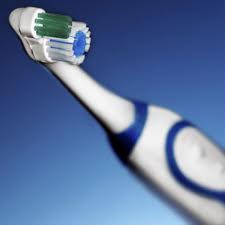 My husband and I have an ongoing debate about whether to buy one of those expensive electric toothbrushes nearly every time one of us goes to the dentist for a cleaning. For the record, he would like to buy one, and I always argue they are a waste of money.
My husband and I have an ongoing debate about whether to buy one of those expensive electric toothbrushes nearly every time one of us goes to the dentist for a cleaning. For the record, he would like to buy one, and I always argue they are a waste of money.
This week, when I was reading a New York Times article about systematic reviews, I came across the answer to our little marital spat. And it turns out, my husband is right.
The Cochrane Collaboration published a systematic review in 2003 that examined whether manual or powered toothbrushes are more effective. Researchers analyzed 29 randomized trials that collected data about plaque and gingivitis from 2,500 participants using either manual or battery-powered toothbrushes. To be included, a trial had to last for at least 28 days in length.
The review found that powered toothbrushes with rotating oscillating brushes “consistently provided a statistically significant, although modest, clinical benefit over manual toothbrushes in reducing plaque and gingivitis.”
After reviewing the data, I shared the news with my husband and gave him the go-ahead to order us a battery-powered toothbrush. Even though my opinion didn’t line up with the evidence, I will admit that it’s reassuring to have a debate settled by the evidence.



I believe oscillating and sonic toothbrushes are equally effective, like Teddy said. Most clinical studies that have compared these two, were biased in favor of one brand, usually Philips or Braun.
You mentioned research about ‘rotating oscillating brushes’, presumably OralB toothbrushes. I would like to add that I have seen data which implies that rotating and sonic toothbrushes (eg Philips Sonicare) have the same impact on plaque and gum health. The bottom line – electric toothbrushes do work better than manual brushes.